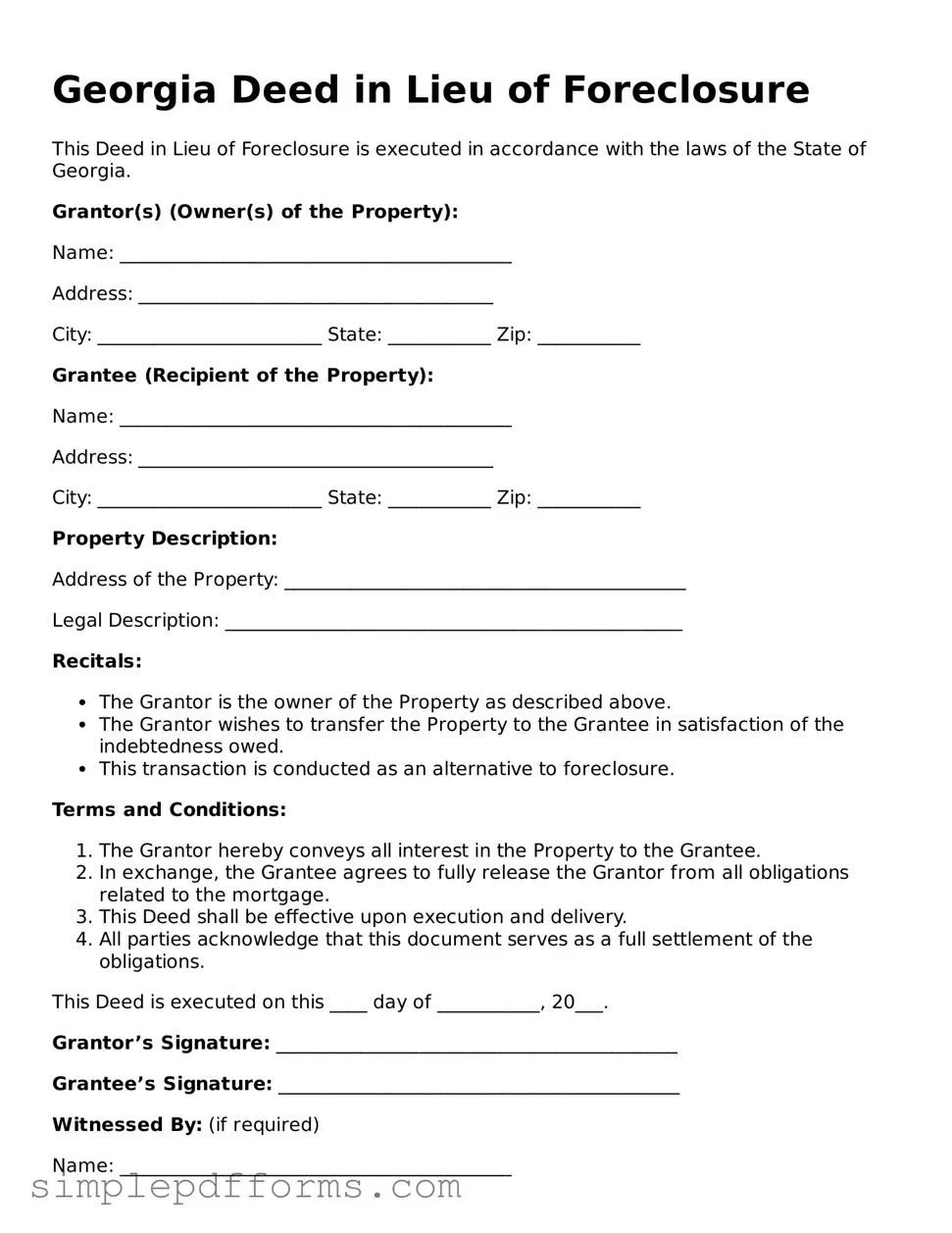Attorney-Verified Deed Document for Georgia State
A Georgia Deed form is a legal document used to transfer ownership of real property from one party to another within the state of Georgia. This form outlines the details of the transaction, including the names of the parties involved, a description of the property, and any conditions or covenants related to the transfer. Proper completion and recording of the deed are essential to ensure that the transfer is legally recognized and enforceable.
Open Deed Editor Now

Attorney-Verified Deed Document for Georgia State
Open Deed Editor Now

Open Deed Editor Now
or
Get Deed PDF Form
Your form is waiting for completion
Complete Deed online in minutes with ease.